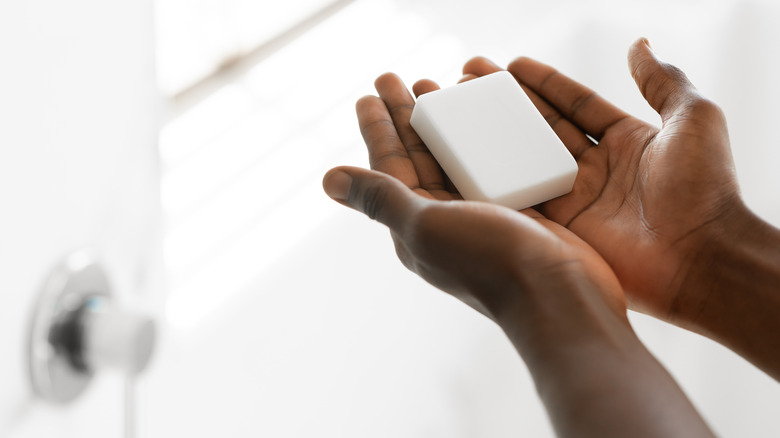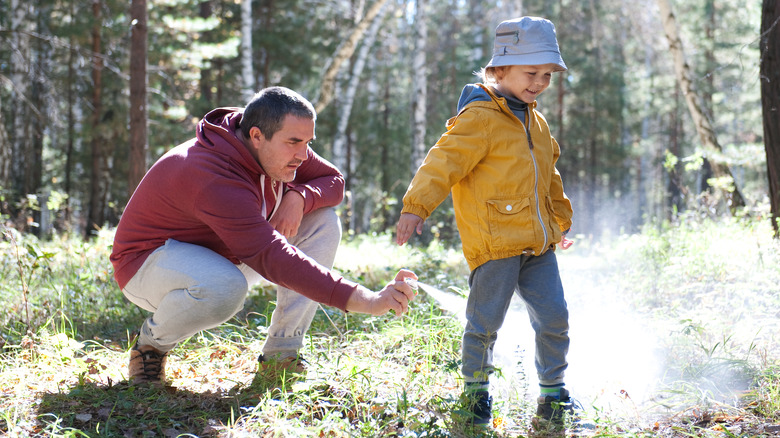Preventing chigger bites
One of the most effective ways to prevent chigger bites is to wear appropriate clothing. When you know you’ll be camping in chigger-prone areas, opt for long-sleeved shirts, long pants, and socks all made of tightly woven fabrics. Though you might get a citation from the fashion police, tuck your pants into your socks to create an additional barrier against chiggers. Another tip is to wear clothing treated with permethrin, which can make you less appealing to chiggers as well as any other hungry insects.
Before heading outdoors, apply an insect repellent containing DEET or picaridin to any exposed skin areas, especially around your ankles and wrists. Some studies have shown that sprays with citronella, tea tree, jojoba, eucalyptus, geranium, or lemon grass oils can also help to keep chiggers at bay. These natural repellents have the added benefit of being safer and more environmentally friendly.
Finally, avoid setting up your campsite in chigger-prone areas. These include places with tall grasses or weeds and scrubby areas at the edges of lakes and forests. Instead, choose clear, well-maintained campsites that are a good distance from any of the aforementioned chigger hotspots.
Some additional precautions

Even if you take all of the precautions, there’s a chance that you will still pick up a few chiggers while walking in the woods or moving around your campsite. But there are things you can do to make sure that these new acquaintances in your clothing don’t latch on to you and start feeding.
After spending time in chigger-prone areas, take off your clothing and put it into a tightly sealed bag, separate from your other belongings. Take a hot shower as soon as you can. Use soap and scrub your skin thoroughly to remove any attached chiggers from your skin’s surface.
When staying in primitive campgrounds where hot showers are not a possibility, do these things instead. After outdoor activities in the chigger-prone areas, remove your clothes and place them in a bag, as mentioned above. Sponge off carefully, focusing on your ankles, wrists, and skin fold areas and put on fresh clothes before entering your tent. This way you avoid contaminating your sleeping bag! Yes, this is a real possibility. When you get back home, wash your soiled clothing in hot water to eliminate any remaining critters.

